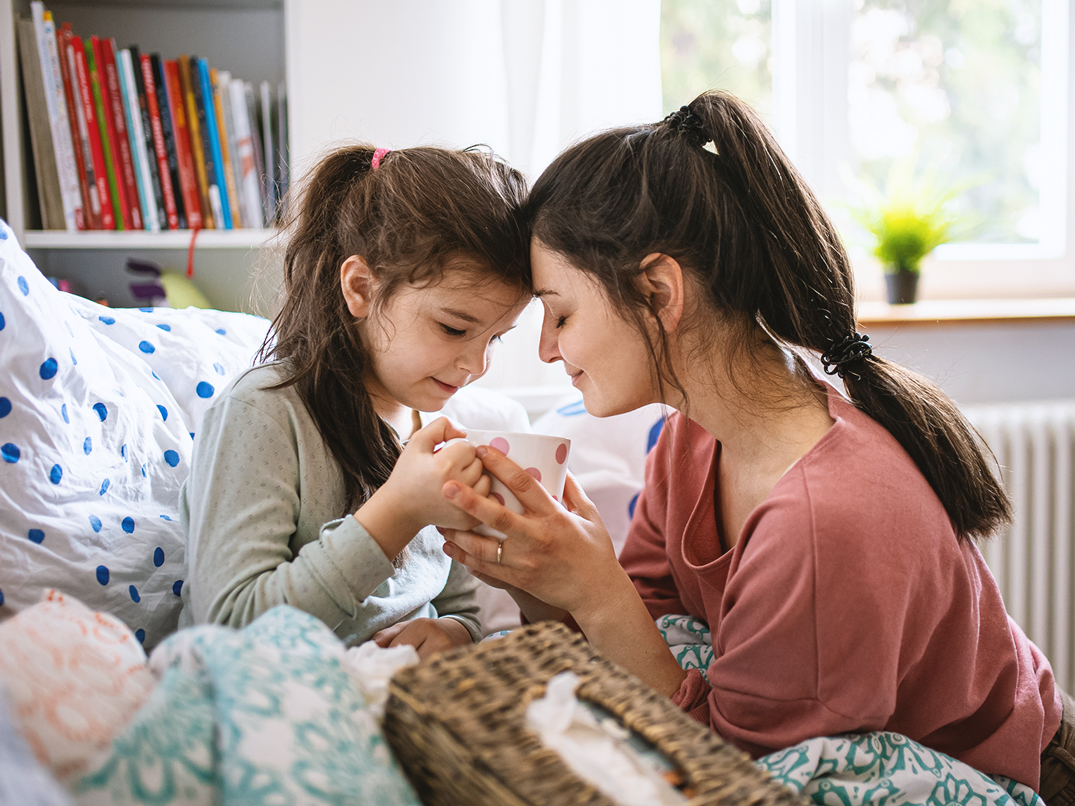Anyone with a family knows the scenario all too well: a child brings home a cold from school or nursery and soon the whole family has a cold, cough and sore throat. But this doesn’t necessarily have to be the case. This article looks at the different ways families can protect themselves against colds and what to do in the event that everyone does catch a cold.
Preventive measures for the whole family
The best chance of getting through the virus season in good health often presents itself before the first cold symptoms appear. By taking preventive measures, you not only strengthen your family’s health, but also their resistance to the annoying viruses that wreak havoc in the autumn and winter months. Here’s which measures are particularly suitable.
Hand hygiene
The simplest and most effective way to protect yourself against colds is to wash your hands regularly. Teach children to wash their hands thoroughly, especially after contact with other children, before eating and after going to the loo.
A healthy diet and sufficient sleep
A balanced diet strengthens the immune system. It is therefore particularly important to ensure that the family eats enough fresh fruit and crunchy vegetables that are rich in vitamins and antioxidants.
Children moreover need enough sleep to develop a strong immune system. So make sure they get enough rest to protect themselves from colds.
What to do when a cold enters the house?
Even with the best precautions, it can happen that a cold suddenly finds its way into your home. At such times, quick and targeted action is crucial to contain the infection in the family and thus prevent the disease from spreading, speed up recovery and alleviate symptoms.
Keep in mind that each family member’s immune system reacts differently to colds.
Isolation and hygiene measures
If a family member is sick, try to isolate them from the others. The use of separate towels and disinfectant to minimise the spread of viruses is therefore particularly advisable.
Encourage sick family members to cover their hands when they cough or sneeze and to wash their hands frequently. In this case, disposable handkerchiefs, which are disposed of after use, are better suited to keeping the virus at bay.
Regular airing and timely medical care
Provide fresh air at home by airing the room continuously. Fresh air helps to expel pathogens.
Restrict joint activities
During a cold, it is advisable to avoid shared activities and close contact in order to reduce the risk of infection.
Adequate fluid intake
Another tip is to ensure that all sick family members drink enough. Keeping the body hydrated is particularly important to support the healing process.
Act in an emergency
If the cold symptoms are severe or do not improve, seek medical help in good time.
Home remedy tip
Inhaling hot water vapour is a tried and tested household remedy for colds. Inhaling the vapour helps to moisten the airways, loosen mucus and reduce inflammation. It can thus help to find relief from symptoms such as a blocked nose, sore throat and cough.
- Bring some water to the boil and pour it into a large bowl or basin.
- Add a few drops of eucalyptus or peppermint essential oil. These oils have anti-inflammatory properties and can therefore provide relief from a blocked nose and cough.
- Bend your head over the bowl, cover your head and the bowl with a towel and slowly inhale the rising vapour. Keep your eyes closed to avoid irritation.
- Do this for about 10-15 minutes. You can repeat this two to three times a day.
Conclusion
Colds can be a real challenge for families. But with preventive measures and a clear approach when a cold enters the house, you can minimise the risk and speed up recovery. With patience, love and careful hygiene, you can get your family through the virus season healthy and happy.











What do you think?